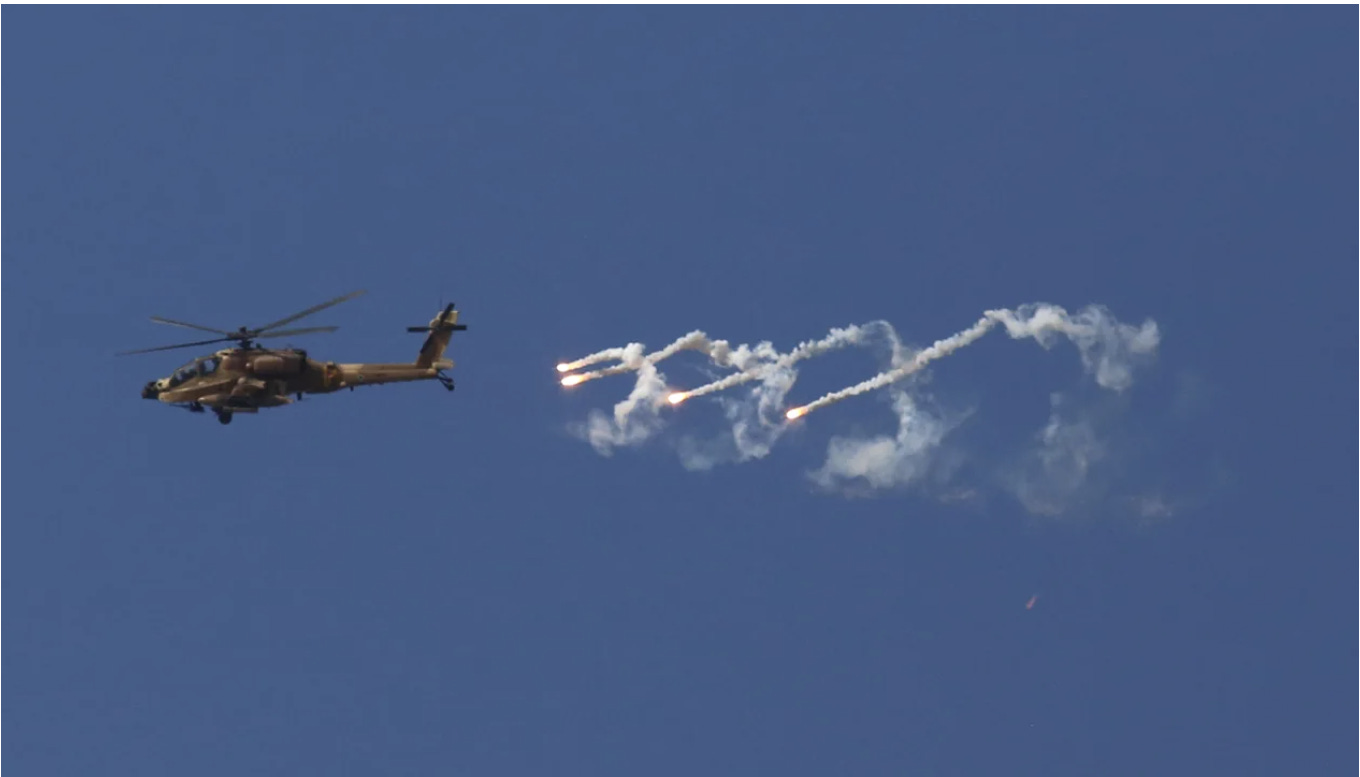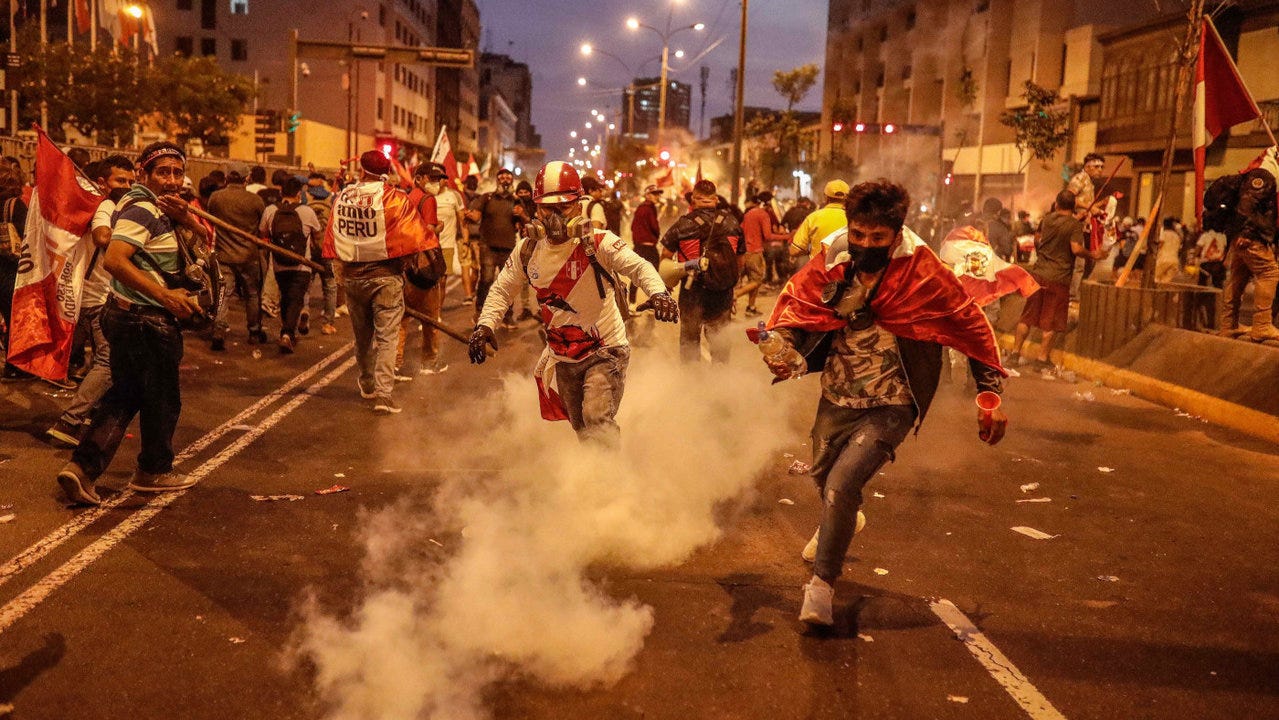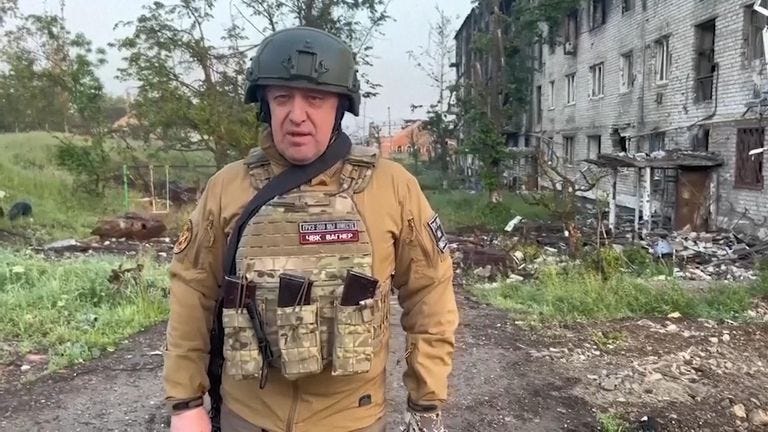This week - Prigozhin, Sierra Leone election, attack on Jenin, Turkey's hawk
Week of June 26th, 2023.
This week we will be talking a lot about geopolitics, militaries and conflict. We are bringing up some pieces of analysis on Russia’s internal conflict, Israeli attacks on Jenin and foreign militaries in Latin America. In the central bank session, we have some brief reports, where we will see Turkey’s hawkish turn. It is also 10 years since Abdel Fattah el-Sisi led a military coup and took power in Egypt. We will have a report during the week on how the country has changed under his rule.
Wagner’s Insurrection
Yevgeny Prigozhin, the leader of Russian mercenary firm Wagner Group, has led an insurrection coming 200km close to Moscow. He also took control of Rostov, the city where the Ukraine theatre’s headquarters are based. The conflict seems to arise from competition for resources between the regular armed forces and the Wagner. Prigozhin, according to our sources, was going to be arrested or killed, so he made a last-ditch attempt to force concessions and secure his life. He was also in strong disagreement with the war’s strategists, who became the targets of his uprising. The minister of defence and some generals could be replaced, as part of the deal with President Vladimir Putin - which was brokered by Belarusian head of state Alexander Lukashenko. This was a dangerous bet, though he is respected by some parts of the military, which said that they would not act against him.
Prigozhin will likely be moving to Belarus in exile. According to reports, some Wagner units will be joining the regular army, while others will be going to Africa. The region is where the mercenary group first grew and has a strong base; it has a presence in Mali, Central African Republic, Sudan, Libya and other conflict-torn countries. It is too early to tell what exactly was agreed between Prigozhin and Putin, though we can see as measures are unravelled. Who is arrested and deposed in the coming week will likely be related to the insurrection and subsequent negotiations.
The timeliness of the mutiny is significant. Wagner units were recovering from their months-long offensive to capture Bakhmut; meanwhile, the regular army was showing success in slowing down the much-awaited Ukrainian offensive. The sudden weakening of the Russian line could not only tip the scales in Kiev’s favour, but also speed up the war. So far this year, we are seeing that both Ukraine and Russia are having trouble succeeding in offensives. Forecasts on the duration of the conflict will vary depending on just how much Wagner’s insurrection has damaged Russia’s capabilities.
Palestine: UN condemns attack on Jenin

Israeli violence against Palestinians continues in the latest attack on the village of Jenin located in the occupied West Bank. The raid by Israeli forces left 7 dead, 4 of which were civilians including 2 children and over 90 wounded. Israeli forces cited the presence of militias in the area as justification for the raid and part of its anti-terror policy. The first time use of modernised warfare technology such as attack helicopters on Palestinian territory in 20 years brought headlines to this story. Israeli forces conducted a similar incursion on the village on January 2023 which also resulted in Palestinian civilian deaths. Reports also emerged that journalists were also targeted by Israeli snipers
The continuous assaults on Jenin and other Palestinian villages in the occupied West Bank have spurred retaliatory attacks and condemnation from the UN and other international organisations who cite the unnecessary use of deadly force to conduct arrests and result in civilian losses. Amnesty International directly linked the violence to Israel’s apartheid system. In keeping with tradition, President Biden and his administration continue to back Israel’s raid on Jenin, only citing concern over violence from both sides and refusing to acknowledge the occupation of Palestinian territories in the West Bank despite international law stating otherwise.
US-China military rivalry reaching Latin America?

The government of Peru has authorised the presence of armed US military personnel. Staff sent by Washington DC, numbering over 1,000, will be training Peruvian troops. According to official statements, will collaborate on intelligence, the navy and anti-drug operations. Japan’s navy has also been allowed entry into the Andean country.
Some politicians and trade unionists have already called out the agreement as taking place to secure US interests. The government of Dina Boularte has been facing protests for six months, ever since President Pedro Castillo was ousted by Congress. The country has continued to face instability, as Castillo’s voters are challenging the legitimacy of the current interim government. Boularte is relying on the legislative houses, where the right wing that once opposed her is now her support base.
Meanwhile, the US has made fresh accusations that China is setting up intelligence facilities in Cuba. Reports from Washington DC even state that Beijing has had a spy base in the Caribbean island since 2019.
Elections in Sierra Leone
General elections in Sierra Leone were held on 24 June 2023 with the two primary candidates, incumbent President Julius Maada Bio and opposition leader Samura Kamara. Maada Bio is seeking re-election for a second five-year term as President in a tight race against his rival Samura Kamara, a member of the centre-left All People's Congress Party. The two candidates previously faced each other in the 2018 elections where Maada Bio won by just over 51%. While International observers recognised the elections as free and fair, the result was contested by members of the opposition including Kamara. Other major issues were raised to question the legitimacy of the election such as the controversial exclusion of naturalised citizens and dual citizenship holders from being eligible to run as candidates.
Maada Bio is hoping to win through his proposed policy of reforming and strengthening education in the country, however other pressing issues such as the economy was also noted to be a priority among many Sierra Leonians, with soaring inflation above 43% and the national currency the Leone having the worst depreciation in Sub-Saharan Africa this year. International Organisations have also raised concerns over a possible outbreak of violence following the elections which could pose further challenges for one of the poorest nations in the world. On the other hand, optimists are also hopeful that if the election goes smoothly, it could present an example for the rest of the continent. Counting began on Sunday the 25th with the official results expected to be released by Monday at the latest. To ensure victory, candidates must secure 55% of the vote or go to a runoff between the two candidates with the highest number of votes.
Central banks
In Latin America, central banks are still offering higher real interest rates than the Fed and the ECB - with a few exceptions. This is giving strength to currencies such as the real, and the Mexican and Colombian pesos. However, such rates are also constraining their respective economies.
In Turkey, the central bank governor has raised rates to 15%, in a sharp hike from 8.5%. The decision, announced on June 22nd, shows that the new governor, Hafize Gaye Erkan is in fact leading a U-turn in monetary policy. Economists were already expecting rates to pivot, given that Erdogan had picked such an unlikely central bank chief; Erkan has a neoclassical economics background, working in Goldman Sachs and First Republic. A Reuters poll even forecast a rate of 20%.
Tanzania’s central bank is advising citizens to stop using foreign currency to pay for basic goods as the country seeks to strengthen its national currency the Tanzanian Shilling (TZS) and gradually phase the US dollar out. Tourists and non-residents are still allowed to use the dollar and other major currencies.







